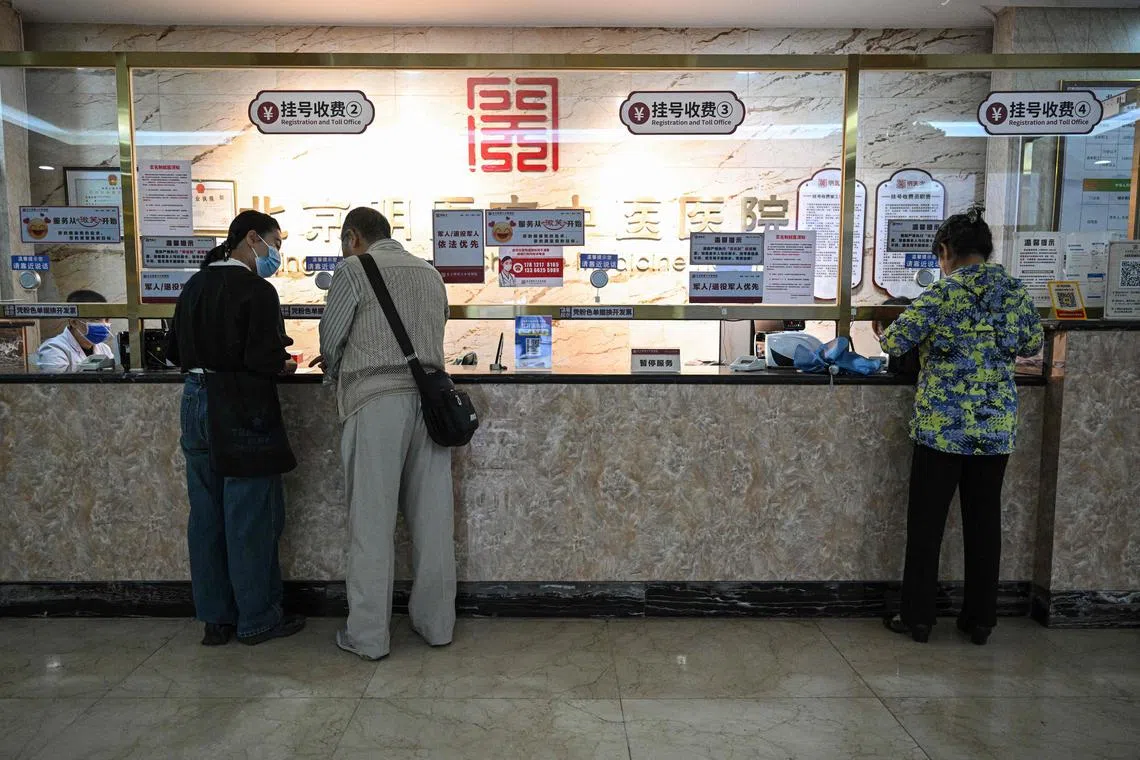China confronts senior cancer surge with early detection, TCM
Sign up now: Get insights on Asia's fast-moving developments

Early detection remains the most powerful tool in fighting cancer, experts say.
PHOTO: AFP
BEIJING - With a rapidly ageing population, China is facing a pressing new public health challenge: cancer among the elderly.
According to the latest data, people over the age of 60 now account for 60.7 per cent of all new cancer diagnoses in the country, making senior cancer care one of the most urgent priorities in Beijing’s efforts to deliver “health for all”.
To promote cancer awareness among the elderly, China has launched a week-long national campaign.
Medical experts are urging earlier detection, evidence-based treatment and greater public education to counter myths that often cause seniors to delay or avoid care.
China’s demographic shift is accelerating: Those aged 60 and above now make up more than 20 per cent of the population.
By 2035, that figure is expected to reach 30 per cent, with the elderly population surpassing 400 million.
A report by the Chinese Anti-Cancer Association shows that lung and gastrointestinal cancers are the most prevalent among older adults, accounting for roughly 65 per cent of malignant tumours in this age group.
Other commonly diagnosed cancers include liver, lymphoma, prostate, and various blood cancers.
“Cancer among seniors is not uncommon, and it’s closely tied to the accumulation of genetic mutations over time,” said Dr Xue Dong, a specialist in senior oncology at Peking University Cancer Hospital.
Dr Xue explained that ageing cells, a declining immune system and long-term exposure to carcinogens significantly increase vulnerability.
Early detection remains the most powerful tool in fighting cancer, experts say.
In response, China’s National Health Commission has called for enhanced public health services, including nationwide health check-ups for adults aged 65 and older, with more frequent screenings for high-risk groups.
Local initiatives are also under way. In Yancheng, East China’s Jiangsu province, residents aged 60 to 69 now receive free testing for 12 common tumour markers.
In Daqing, the north-eastern province of Heilongjiang, the authorities offer free screening for five major cancers – lung, breast, liver, upper gastrointestinal and colorectal – to citizens aged between 45 and 74.
Beyond cancer screenings, physicians also promote healthier daily routines.
Dr Zhang Tong, a cancer specialist at Xiyuan Hospital of the China Academy of Chinese Medical Sciences, encourages seniors to maintain a balanced diet and practice traditional Chinese fitness exercises, such as taiji and baduanjin (a form of qigong), which are said to enhance energy and immune function.
Doctors also emphasise that traditional Chinese medicine can play a supportive role in conjunction with Western medical treatments.
During chemotherapy, therapies such as acupuncture and acupoint patches might help relieve side effects such as nausea, appetite loss and constipation.
For radiation-related symptoms such as skin damage and mouth ulcers, herbal baths and steam therapy may offer relief.
Dr Li Yuanqing, a colleague of Dr Xue at the same hospital, notes that clinical experience shows these approaches can ease patient discomfort during chemotherapy and radiotherapy.
Additionally, experts warn of deep-rooted misperceptions. Many older patients place faith in miracle cures or folk remedies, while others fear that conventional treatments like surgery or chemotherapy will only accelerate their decline.
“Treating elderly cancer patients requires balance,” said Dr Xue. “We can’t simply apply treatments designed for younger people, nor should we dismiss care due to age. The key lies in personalised treatment, guided by both medical need and the patient’s physical and emotional readiness.”
“With science and compassion as our prescription, more elderly cancer patients can look forward to a dignified late life,” Dr Xue said. CHINA DAILY/ASIA NEWS NETWORK


